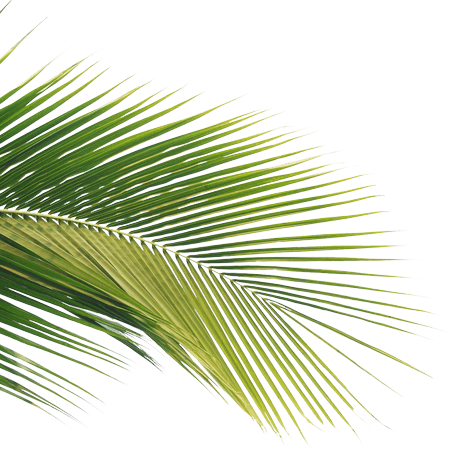Feb 09., 2009 / Soul Food
Praying One’s Suffering
Who among us has not drank from the cup of suffering? It could be an unexpected illness, an accident, psychological difficulties, troubled relationships, betrayal, loss of meaning, death of a loved one… The question we spontaneously ask would be something like: “Why me?” As we reflect on the reality of suffering, maybe we can also ask ourselves: What is God’s invitation to me with regard to my suffering? How am I to bring this experience into my relationship with God?
When we find that suffering has made a temporary home in our hearts, we are often told to “bring this experience to prayer”. Many are puzzled. How can we concretely “bring this experience to prayer?”
The Gospel of Matthew has Jesus saying:
Come to me, all you who labour and are over burdened and I will give you rest. Shoulder my yoke and learn from me, for I am gentle and humble in heart, and you will find rest for your souls. Yes, my yoke is easy and my burden light. (Matthew 11: 28-30)
When we are in pain, a very spontaneous cry from our depths is Lord! Help me! Save me! Spare me! If the suffering persists, an invitation to explore is how I can share my suffering with Jesus and not be plunged into despair. How can I turn my initial questioning into something like: “Lord, how do we go through this together? Where will this bring me? Where will this bring us?” How do I get through this and still be whole? We have two options when faced with suffering. One is to move into despair, despondency, bitterness, some form of “death” even while still living OR go through the process of questioning ourselves, re-prioritizing, searching for the meaning behind the experience, and holding on to hope and faith.
The faith questions we could be asking in the midst of pain might be: How can I walk with God when I’m hurting so much? When I don’t know how? How can I still take on the yoke of Jesus when I can’t seem to stand it anymore?
A homily once explained what this imagery of taking on the yoke is about. It seems that in the Jewish culture, one yoke is used to harness two bullocks. First to be harnessed is an older, more seasoned bullock. Then, a younger bullock needing to be trained for the job is fitted with this same yoke. These bullocks are tied to huge stone mills which they are supposed to turn by going around and around. The more seasoned bullock is placed in the outer path thus leading the work and pulling most of the weight. The younger bullock in the inner path follows and thus learns to carry the weight and do the job.
When I go through some suffering, can I hear Jesus’ invitation to go to him and let him carry most of my burden as we continue to walk together? Do I hear him ask me to stop struggling, stop trying to control things, doing things my way and just let go?
Sharing our pain with Jesus might seem easy enough for us to do because we could have an image of Jesus as the miracle worker who will take away all our problems. Sharing our pain with Jesus means allowing Jesus to stay with our pain and that might mean that he will not solve our problems or take away our pain. In the Bible we often hear him say, <em>Fear not! I am with you. He did not say, I’ll solve your problems for you!
In sharing my suffering with Jesus, I can choose how to respond to painful experiences. I can choose to grow and shape it into a positive force in my life. To be alive and to grow, inevitably involves pain. How do we make our way through the darkness? How can we say “yes” to growth and be open to new life? Life’s hurts and death are an integral part of our life but they need not be the center.
I would like to suggest a simple prayer form where we could bring our experience of suffering to prayer. I call this Prayer of Open Hands – a way of sharing my suffering with Jesus.
Reflecting on the layers of meaning of “open hands” one can see open hands as speaking of surrender and letting go of one’s control as contrasted to clenched fists or closed hands which speak of control, of being closed. Open hands also connote a posture of begging after realizing one’s emptiness, one’s poverty as creature. I realize that I am a beggar, that I can’t do anything without God. It also speaks of the capacity to receive and to be filled after having been emptied. God can pour graces and I am more disposed to receive.
To begin the prayer, take a comfortable sitting position where your body is relaxed and alert… your hands on your lap with your palms open and facing up. Take a few deep breaths — breathing in deeply through your nostrils … letting the air fill your lungs and your abdomen… breathing out slowly through your nostrils… As you continue your gentle breathing, feel your body going into deeper relaxation… Moving gently into your quiet center, you become aware of coming into the presence of the Holy One… called into the presence of God…
Recall the words of Matthew 11:28-30 “Come to me, all you who labour and are over burdened and I will give you rest. Shoulder my yoke and learn from me, for I am gentle and humble in heart, and you will find rest for your souls. Yes, my yoke is easy and my burden light.”
Pray to the Spirit of Jesus for the grace to be open and to be generous in responding to what Jesus may be inviting you to.
Recall an experience of great personal suffering and pain you have been carrying. Try to come up with a symbol for this experience. This suffering can be imaged as a broken heart, a torn letter, a withered plant or whatever else speaks to you.
Imagine that you come before Jesus and you hear him speak the words from Scripture addressed to you. You may even see Jesus with his arms open and outstretched to you – a symbol of welcome. Hear Jesus say to you, “Come to me, you who are heavily burdened and I will give you rest.”
In your imagination see yourself stretch out and open your hands to Jesus. Imagine you are holding in your open hands the symbol of your suffering that you want to surrender or hand over to Jesus. As you do so, repeatedly pray this short petition: “Into your hands, O Lord, I surrender my pain. Into your hands I rest my body, my mind, and my being.” Keep repeating this until you are brought to a point of quiet and silent presence.
At the end of your time of quiet prayer gently pray the Our Father.
“Let this be my last word, that I trust in Your love.”
(Rabindranath Tagore)
Malen Java, rc










LEAVE A REPLY